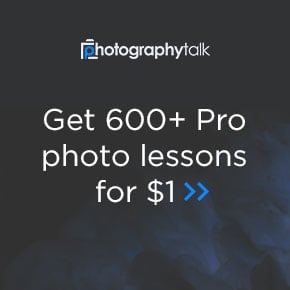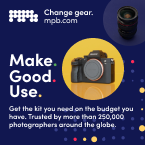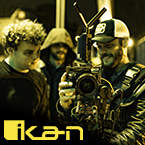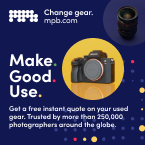- Forum
- General Discussion | Introductions | Off Topic Forum
- Photography General Discussion
- RAW vs Jpeg (All in one thread)
RAW vs Jpeg (All in one thread)
-

- Nikonjan
- Master of the Lens
-
- Nikon D300
- Followers: 142
- Posts: 1566
-
Points:
0
Post #113824
www.betterphoto.com?nikonjan
-
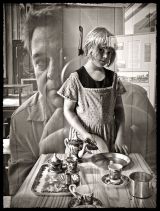
- Henry Peach
- Apprentice
-
- I currently use a 5DII or Sony Nex-3 most of the time.
- Followers: 50
- Posts: 2925
-
Points:
16
Post #114056
Jpeg is some, not all, of the ingredients, and they have already been mixed and cooked.
The reason raw is said to be better is because it is assumed that with some practice you could become a much better cook than the software in the camera.
-

- Shadowfixer1
- Photo Elder
-
- Olympus OMD E-M1 MKII
- Followers: 1350
- Posts: 5554
-
Points:
73334
Post #114086
-
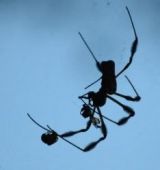
- Dori
- Moderator
-
- Nikon D5000
- Followers: 167
- Posts: 7371
-
Points:
12
-
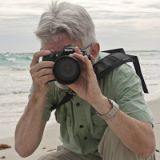
- cod
- Snapobsessed
- Nikon D300S
- Followers: 71
- Posts: 484
-
Points:
1165
-

- Jeanie in the lens
- New Kid On The Block
-
- nikon D3000
- Followers: 8
- Posts: 32
-
Points:
0
Post #114105
Dori wrote: I have read endlessly and can't see why RAW is superior to JPG. I tried RAW with Gimp but all it did was convert the photo to JPG for editing. What am I missing. (Besides the obvious
)
For me, jpeg is superior to raw, because I don't shoot raw. In the end, I think it's up to the individual if they find, raw, jpeg or even tiff to be superior to one another.
-

- Shadowfixer1
- Photo Elder
-
- Olympus OMD E-M1 MKII
- Followers: 1350
- Posts: 5554
-
Points:
73334
Post #114127
That's not finding what is superior. That's finding what you are comfortable using. That is two very different things. RAW is superior, it just may not be what you are comfortable using.Jeanie in the lens wrote:
Dori wrote: I have read endlessly and can't see why RAW is superior to JPG. I tried RAW with Gimp but all it did was convert the photo to JPG for editing. What am I missing. (Besides the obvious
)
For me, jpeg is superior to raw, because I don't shoot raw. In the end, I think it's up to the individual if they find, raw, jpeg or even tiff to be superior to one another.
-

- Henry Peach
- Apprentice
-
- I currently use a 5DII or Sony Nex-3 most of the time.
- Followers: 50
- Posts: 2925
-
Points:
16
Post #114136
Jeanie in the lens wrote: For me, jpeg is superior to raw, because I don't shoot raw. In the end, I think it's up to the individual if they find, raw, jpeg or even tiff to be superior to one another.
All digital photos start out as raw data. Almost all end up as jpegs for display and printing. There is no Raw vs Jpeg. Both are normal steps in the creation of a digital photograph. What we are discussing here is processing, and it's up to the individual photographer to assess what processing techniques help them get the best results.
Saying that raw is better than jpeg isn't much different than saying the Zone System + print film + darkroom is better than shooting slides + automatic E-6 machine. That may be the photographer's personal preference, but history shows us both are viable workflows.
-

- Stealthy Ninja
- Moderator
-
- Fuji X stuff and a 1DsIII for some reason
- Followers: 982
- Posts: 16300
-
Points:
6837
Post #114591
Dori wrote: I have read endlessly and can't see why RAW is superior to JPG. I tried RAW with Gimp but all it did was convert the photo to JPG for editing. What am I missing. (Besides the obvious
)
I see a problem here. It seems gimp isn't giving you the controls you need.
If you use a PC you should get this:
ufraw.sourceforge.net/
It will let you open RAW in gimp (I suppose).
I highly recommend you get Adobe Lightroom. It will give you some nice basic RAW controls without the expense of Photoshop. It's also a good file organiser too.
If your program is just converting it to jpeg to edit, then there's really no point of using RAW unless you're planning on getting PS or Lightroom or Aperture (Mac) at a later date to be able to get the most out of RAW.
-

- Stealthy Ninja
- Moderator
-
- Fuji X stuff and a 1DsIII for some reason
- Followers: 982
- Posts: 16300
-
Points:
6837
Post #114593
Jeanie in the lens wrote: For me, jpeg is superior to raw, because I don't shoot raw. In the end, I think it's up to the individual if they find, raw, jpeg or even tiff to be superior to one another.
I guess you have your reasons for shooting jpeg.
But IMHO you might be doing yourself a disservice. If you find later you want to switch to RAW then all your old files won't have the same flexibility that RAW gives you. You might kick yourself later.
I know this from experience. I took a bunch of pictures at an event for my work (back when I didn't know about/understand why I needed RAW). The pictures are all really warm (they looked ok to me at the time, but I didn't know any better).
Now I want to go back and fix the white balance, but I can't do it effectively because they're all in Jpeg and I don't have any RAW files.
Just food for thought.
-

- Henry Peach
- Apprentice
-
- I currently use a 5DII or Sony Nex-3 most of the time.
- Followers: 50
- Posts: 2925
-
Points:
16
Post #114639
-

- Stealthy Ninja
- Moderator
-
- Fuji X stuff and a 1DsIII for some reason
- Followers: 982
- Posts: 16300
-
Points:
6837
Post #114659
Henry Peach wrote: I'm playing the devil's advocate here. I shoot raw 100% of the time - even family snaps, for all the reasons mentioned. But I know there are folks who don't do processing, and still do a good job. In the last 123 years very few photographers took control of their own processing. George Eastman came up with machines to do the developing and printing right after film took off. Except for high school and college photo classes not many amateurs or pros were working in the darkroom. Today there are more photographers taking control of their own processing than ever, but some folks still find it tedious.
All true and I agree. Except to me (and this is JMHO) programs like LR take away most of the troubles with "processing" RAW.
Then again, to get the most out of LR you need to know how to set up the default to look the best when importing RAW files. (Hint, hit ALT/Opinion when in Develop mode and "reset" will change to "Set Default". Allowing you to have that setting dialed in for each newly imported RAW file.
To get the most from RAW you need to understand these things:
1. How to read a Histogram (and a bit about dynamic range).
2. Sharpening (and sharpening masking)
3. Colour correction (white balance)
4. Noise Reduction (and how it interacts with sharpening).
I think that's about it. There's also curves/levels and some other things, but if you understand the 4 things above you're on your way.
-

- Shadowfixer1
- Photo Elder
-
- Olympus OMD E-M1 MKII
- Followers: 1350
- Posts: 5554
-
Points:
73334
Post #114665
-

- Henry Peach
- Apprentice
-
- I currently use a 5DII or Sony Nex-3 most of the time.
- Followers: 50
- Posts: 2925
-
Points:
16
Post #114794
-

- Stealthy Ninja
- Moderator
-
- Fuji X stuff and a 1DsIII for some reason
- Followers: 982
- Posts: 16300
-
Points:
6837
Post #114795
Henry Peach wrote: In that case a 16x20 view camera and sheet film is superior to it all. Yet millions of photographers make a different choice.
Not hand held in low light it aint
- Forum
- General Discussion | Introductions | Off Topic Forum
- Photography General Discussion
- RAW vs Jpeg (All in one thread)
Latest Reviews
The Canon EOS R100 is an entry-level mirrorless camera introduced in 2023. But just because it’s an entry-level camera doesn’t mean it’s a bare-bones camera. Find out why in this review!
Nikon’s retro-looking Nikon Zfc is anything but retro. Under its classic body is a host of features and amenities that make it a worthwhile compact mirrorless camera for 2024.
The Canon EOS R50 is one of the newest R-system cameras from Canon. Is it worth your money? Find out all the details you need to know in this comprehensive review.
The Sony FE 70-200mm f/2.8 GM OSS II is Sony’s flagship mirrorless zoom lens. As such, it’s loaded with features and has a top-shelf build quality that makes it a top pick!
Forum Top Posters
-
1TCav 6 posts
-
2Prago 4 posts
-
3Foggy 4 posts
-
4Sandy Smith Photos 3 posts
-
5Razky 3 posts
-
6No Show 3 posts
-
7CaptNemo 3 posts
-
8db3348 3 posts
-
9Scotty 3 posts
-
10Rob Conley 2 posts
Latest Articles
Creating impactful photos of landscapes depends on many factors, not the least of which is your talent behind the lens. This guide explores other elements required for the best product.
The Canon EOS R100 is an entry-level mirrorless camera introduced in 2023. But just because it’s an entry-level camera doesn’t mean it’s a bare-bones camera. Find out why in this review!
Are you ready to upgrade your camera? Before buying new, you might consider the value of purchasing used gear to save money.
The Olympus OM-D E-M10 Mark IV is a micro four thirds camera released in 2020. It’s an entry-level system along with the OM-D E-M5 Mark III. Use this guide to determine which one is best for you!
Blue hour photography might not be as well known as golden hour photography, but it is every bit as good a time to create epic images of landscapes. Learn how in this quick tutorial!
Nikon’s retro-looking Nikon Zfc is anything but retro. Under its classic body is a host of features and amenities that make it a worthwhile compact mirrorless camera for 2024.
Moving from taking snapshots of your dog to creating beautiful images doesn’t have to be that difficult! Use the tips outlined in this dog photography guide, and you’ll get better results in no time.
Acrylic print photos are a beautiful way to display your favorite images. But they don’t come without some questions. Get all the answers you need about this medium in this guide!












